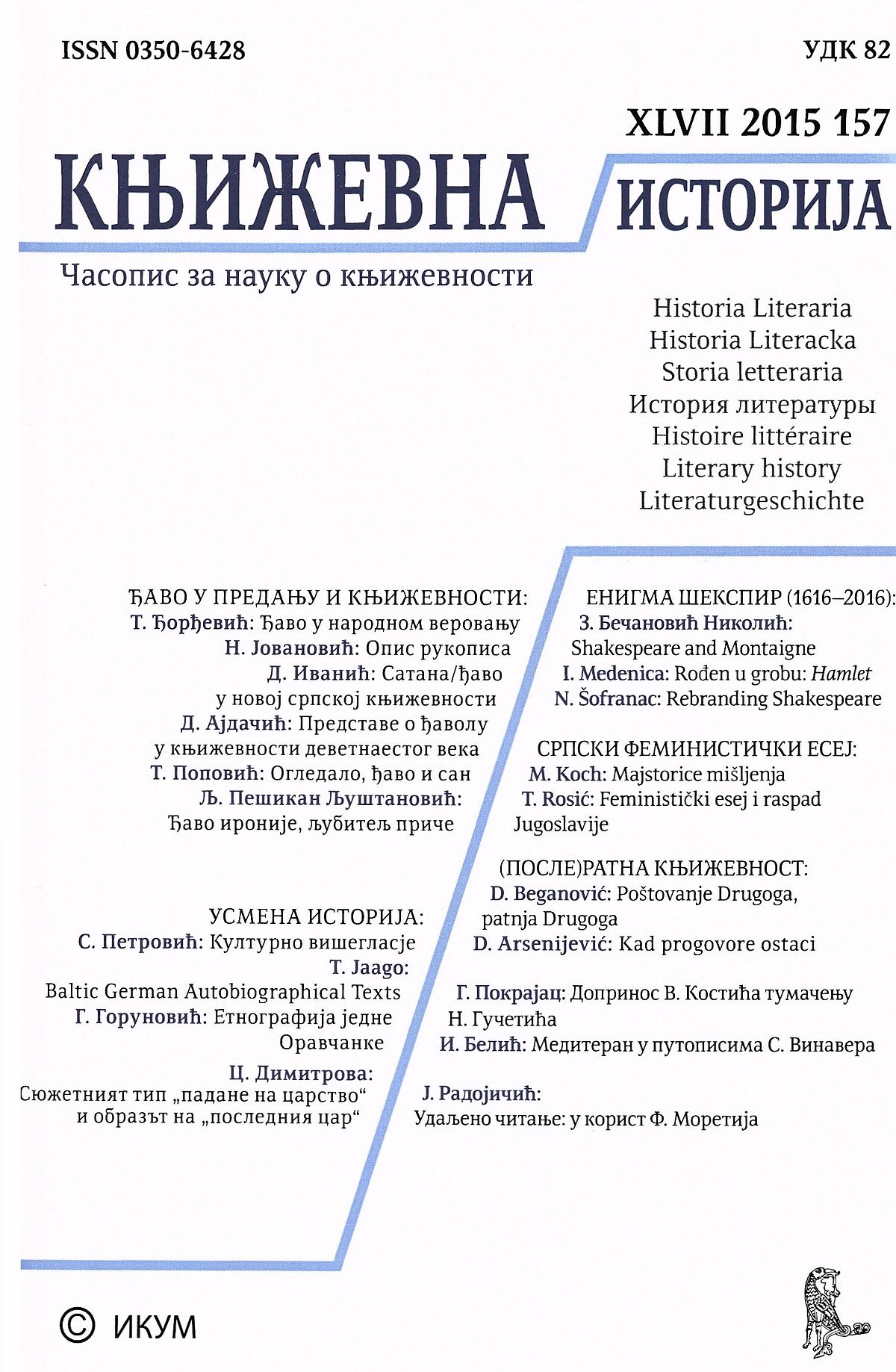Rođen u grobu: Hamlet od tragedije inicijacije do egzistencijalističkog moraliteta
Born in the Grave: Hamlet, from Initiation Tragedy to Existentialist Morality
Author(s): Ivan Medenica Subject(s): Theatre, Dance, Performing Arts, Theory of Literature
Published by: Институт за књижевност и уметност
Keywords: Hamlet; Shakespeare; initiation; tragedy; psychoanalysis; existentialism; maturity
Summary/Abstract: The key assumption of the present study is that Shakespeare’s famous play Hamlet traces an arc from “initiation tragedy”, about a young man’s conflict with himself and the world of powerful and unscrupulous adults, to a modern “existentialist morality”, dealing with coming of age, accepting the idea of one’s own death and being at peace with oneself. We begin the argument by ascertaining Hamlet’s age and proving that within a timespan of only a few months – a duration calculated using logic, which is unsuitable to Shakespeare’s dramaturgy – Hamlet matures from a student in the early modern period (aged 16 to 23), to a person on the verge of maturity (aged 30). Based on this claim we argue that a very broad spectrum of analyses of the “Hamlet’s problem” (why he is delaying his vengeance), from psychoanalytical to anthropological and existentialist, can be related to his age identity – with his adolescent age and the psychological and ethical problems related thereto. The question of Hamlet’s age and everything it entails is viewed from multiple perspectives, both from the standpoint of the Early Modern period when the work was originally written (the cultural materialist and new historicist approaches), and from a present day standpoint (the presentist approach). The final section of the paper argues that in the graveyard scene in Act V, having faced the idea of his own finality, Hamlet matures and is ready, not so much to accept the imperative of revenge, but to simply give in to it, without any fatalism. It is argued that this new attitude towards the task of vengeance functions on two interlocking levels: the psychological one (maturity) and the existential one (the relationship to unchosen situations in life).
Journal: Књижевна историја
- Issue Year: 47/2015
- Issue No: 157
- Page Range: 167-188
- Page Count: 22
- Language: Serbian

